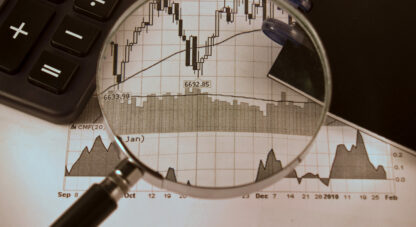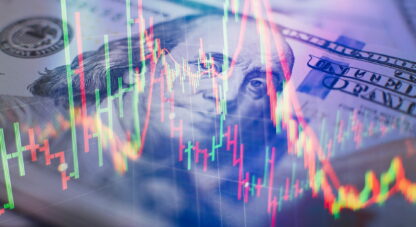About this week’s show:
- Puerto Rico to the world-“We cannot pay!”
- Greeks vote NO: who will put Humpty back together again?
- Deflation is truly gold’s best friend
The McAlvany Weekly Commentary
with David McAlvany and Kevin Orrick
“I have never been more bullish in my life. And anything can happen in the short run, but taking into account the massive amount of overcapacity that we have in the provision of goods and services, which, if liquidated, even at the margins, take asset prices to the netherworld. Then you have gold. Is it at lower nominal values? Maybe, but it still has its purchasing power.”
– David McAlvany
Kevin: Dave, what a week. We could talk about China, we could talk about Greece, we could talk about Puerto Rico. What we could talk about, too, is that there seems to be a return of some volatility in these markets, and in a weird way that is a breath of fresh air, as frozen as they have seemed over the last 18 months.
David: Well, right. And I think you have a clustering around a consensus view, which is, the central banks are going to fix everything so just don’t bother being concerned, and so, without any new information and all hopes being hinged on this truth that the central banks will prevail, volatility fades to nothing, until, of course, the consensus view changes, and I don’t know that we have seen it change radically, but as and when it does you are looking at radical volatility re-emerging.
Kevin: Is it different this time? Because we have seen the central banks come in and bail things out quietly and keep the markets from getting too volatile. In fact, we even saw that with the People’s Bank of China this week where they are coming in and just blasting money into the stock market to keep it from falling. Tell me what is different this time.
David: Well, as you mentioned, there are three categories – Puerto Rico, China, and Greece. Defaults are common throughout financial history, and the concern amongst creditors is not taking a loss, it is really calculating where the losses end once they begin, making sure that they can kind of say, “Okay, well, I will take a 10% loss but that’s it.” How do you do that, particularly in an interconnected global financial system where derivatives have been used as a means of increasing leverage?
And I guess, in a theoretical sense they have been used to reduced risk exposure, but the concern is very real, because as with Lehman or AIG, you have these risks which ultimately roll uphill. And you don’t have an end to panic. Outside of government stepping in and backstopping, not tens of billions of dollars, but hundreds of trillions in liabilities, which for all intents and purposes is the same thing as launching into a systemic crisis of confidence where every asset that was once considered to be a safe haven joins in the devaluation death march.
Kevin: We have seen this seven years, though, to be something we have never seen before, where you see central banking actually able to calm the markets to where they virtually don’t exist. In fact, everyone seems to be betting on the same assumption. I read a report that you gave me a couple of days ago by Michael Pettis, a guest of ours, and he talks about once you have that happening, where everyone is betting the same assumption, you are setting yourself up for an incredible panic.
David: His reference was to the Chinese markets, but I think it has a broader application. He says here recently that if a substantial fraction of trades are driven by a convergence in strategies, especially toward a highly speculative strategy, there represents an institutional change in the trading system that automatically and mechanically reduces variance, increases volatility and price gapping, and strengthens herd behavior in a self-reinforcing process. And I think that is exactly where we are. Not only have we had a convergence in strategies, but a convergence in the underlying assumptions about what is going to drive the markets heretofore.
Kevin: Isn’t that what panic is? I remember all through the years when your dad would give a talk he would talk about panic. Panic is something that occurs because no one sees it coming. In other words, they are basing their assumptions … everyone’s saying, “Well, yes, it has been this way because yesterday it was this way.”
David: That is what we have talked about in recent times relating to catastrophe math, and even the punch line of a joke. The reason why the punch line of a joke is so powerful is because it is unanticipated. You think you know where it is going and then all of a sudden – boom! It shifts another direction. The punch line makes you laugh because you didn’t see it coming.
Kevin: It surprises you.
David: That’s right. But humor has something deeply ingrained and consistent with catastrophe math. Well, today the theme is deflation. Debt default – as we said earlier, you have defaults throughout history, it is fairly common. But there are three areas of concern in play at once right now. One is the default restructuring in Greece. Two is the potential, or eventual, restructuring in Puerto Rico. And three, there is a financial wealth effect in China, which is being supported by the state government via the equity markets, and it is intended, really, to take the pressure off of the Chinese debt markets, which have been out of control for several years now. And so, a collapse in prices in real time, right now, in the Shanghai and Shenzhen stock markets, the Hong Kong stock markets, as well, is not helping just at the moment.
Kevin: And I think so many people were focused on Greece this last weekend that they missed completely what was going on in China. And what you have in China right now is a very severe downturn in the stock market that then was reinforced by printed money, basically, and we can talk about this later, but they are putting people in jail right now, Dave, for talking down the stock market. They are telling the press that they are not allowed to say anything negative about the stock market. They are telling pension funds that they can’t sell stocks or go with short funds. I would like to discuss that later, but Dave, in the meantime, you brought up deflation. Iron, copper, everything is falling.
David: The fourth and final issue relating to the theme of deflation is that you have not only a contraction in demand for basic commodities, but also there is still an increase in supply. Iron ore – you have had ten months in a row of losses, and miners are still increasing production even as demand slows. You have Brazil as a country, others as well, but as an economy which reflects those commodities’ activity or lack thereof.
Kevin: How about Dr. Copper, which is what most people watch to see what commodity inflation or deflation will do?
David: Right. You have had several months of weakness and certainly on a day like today or a week like this week, continued pressure there. And I think of Chile as one of those proxies for the copper market, and their economic prospects continue to diminish, their expectations of growth are very modest. I understand that Chile is more than just a copper producer, but their growth is stalling and there is no doubt Dr. Copper is speaking in terms of the direction of the global market.
We talked about – this goes back at least a year – if copper were to break below $3 per pound that we would see a resurgence of concern, a realistic resurgence of concern relating to deflation. And you see that supported by platinum and palladium. Look at palladium in the last two months – down 18%, another 5% earlier this week. Last week oil down 7% in one week. This is downside in commodities which is consistent with a growing concern about all asset prices in the context of a debt liquidation.
Kevin: Part of what is making things drop, Dave, is that you have countries around the world saying, “We can’t pay our debts.” Let’s look close to home – Puerto Rico.
David: Yes, taking a quick look there, the governor of Puerto Rico, this last week, said, “We cannot pay. We have to restructure our debt.” And yes, restructuring is coming for municipal bonds in Puerto Rico. 40% of the population lives below the poverty line. The debts of that island country amount to $20,000 for every man, woman and child, and it is on its way because of the current rate of debt compounding, toward $40,000 per head over the next ten years. What does this look like? For a family of four, if you wanted to break down just the interest payments on their municipal debt, according to household you are talking about $10,000 per household.
Kevin: So, utterly unpayable.
David: It is just not payable. You look at the amount of productivity in the economy, it is gearing down, not gearing up. And here is where the rubber meets the road. The insurers of the debt – we are talking about MBIA, we are talking about AMBAC, we are talking about Assured Guarantee.
Kevin: These are insurance companies that insure municipal bonds.
David: Right, just like the FDIC gives you a veneer of protection, a sense of calm, a “guarantee.” Of course, we know that they are very underfunded for the liabilities that they cover. Well, the same is true for MBIA, AMBAC, and Assured Guarantee, because keep in mind they insure more than just Puerto Rico. They insure municipal bonds all over the U.S. So MBIA – if you look at the fair value of their exposure to Puerto Rico, it is about 4½ billion dollars, and that exceeds their cash and short-term investments by 2.6 times.
Kevin: So, just the Puerto Rican bonds. Now, they are insuring bonds all over the world.
David: Right.
Kevin: Especially the United States and Puerto Rico.
David: Exactly. MBIA’s exposure to Puerto Rico is 2.6 times all of their cash and short-term investments. It is not a good thing. Assured Guarantee? The fair value of their exposure is about 4.9 billion, and they have cash and short-term investments which are a lot smaller than that. In fact, their exposure to Puerto Rico is about four times greater than all of their cash and all of their short-term investments combined. And AMBAC, although it is a smaller dollar exposure to Puerto Rico, 2.44 billion, if you count up their cash and short-term investments, they are not very well funded, and in fact, their Puerto Rican exposure dwarfs cash and short-term investments by almost ten times.
Kevin: Well, let me then, hypothetically, walk through the scenario. If Puerto Rico is going to default and these municipal bonds are not going to pay, these insurance companies are insuring a municipal bond market here in America that is worth trillions, are they not? So, how can we see these guys go under? Are we looking at another bailout?
David: We don’t know that Puerto Rico is going to default, but we do know that we have moved into the realm of government choosing winners and losers. Lots of hedge funds have stepped in and invested in Puerto Rico at a discount over the last two to three years as the problem has been bubbling just under the surface, and now these hedge fund guys and very well connected Wall Street elites – guess what? They will call in political favors and say, “Hey, wait a minute. I know I bought a discounted asset, but I expect to sell it at a premium. I expect to make money.” Listen, you know, in the world of investment, you pay your money, you take your licks. Sometimes you win, sometimes you lose.
The interesting thing is that we are at a phase in the economic cycle where that is not really the case. If you go back to Minsky’s cycle – you and I were talking about this last night – the first phase of Minsky’s cycle is a healthy expansion of the economy, followed by leveraged activity, that is, borrowing to increase growth over time. Then you move into the third phase, which is an over-traded phase, and it is very euphoric. The fourth phase is where you have insider profit-taking. And then the fifth stage is where it gets very interesting. It is the liquidation and panic stage, followed by revolution in the marketplace. And then you get to restart with a healthy expansion again.
This is what Minsky described as sort of your business cycle, and I think we are already at the insider profit-taking stage with liquidation and panic immediately on the horizon, and this is why the Wall Street insiders are going to do everything they can and howl like a bunch of monkeys to make sure that they are not the ones to take the loss. We will see later on how we have seen loss-shifting already occur in Europe.
Kevin: Well, as you have brought up before, unless you are well connected you are going to lose money. But the well connected on that Minsky cycle, over this last seven years we really haven’t had the liquidation panic because the government has been off-loaded all the bad debt. I want to talk about that, then, with Greece, because we had the no vote that came out on Sunday.
David: And it is pretty significant. Tsipras needed a direct mandate from the people if he was going to continue on with the hard negotiations with the ECB. He needed a little bit more leverage. And he got that by putting it to the people, “What do you want?” A no vote meant that agreeing to tax increases and budget cuts, along with other forms of austerity, was of no interest to the Greek population, and he wanted to have a popular vote to take that to the ECB and say, “Listen, you know we’re not going here. It’s not me, it’s not my party, we’re not the wing nuts. The vast majority of the population say, “We have a mandate to avoid austerity and to go a different route.” So, what is that different route? We will see as it unfolds, but the assumption is that Europe will now kick them out, or Greece will leave the EMU or the eurozone.
Kevin: For the person who has been watching the news and feels confused about Greece, I think we ought to look at what Europe’s response is because they are at fault for what is going on in Greece right now. And talk about offloading bad debt onto the backs of the people – let’s go ahead and go through that.
David: The common man feels disgust with having to pay Greece’s bills. If you are in France, if you are in Germany, if you are in the eurozone, you think to yourself, “Wait a minute, if this goes poorly it is going to hurt the ECB. We are members of the ECB. That means that ultimately our countries’ national central banks are going to have to pony up, which means, really, the taxpayer is on the hook for all this bad debt that Greece is getting ready to default on.” That is not entirely the case. It may reflect the current state of affairs, but the banking sector in Europe in the last few months, actually, the last few years, has conveniently offloaded a majority of risk directly onto the ECB.
Kevin: So they saw this coming and moved it to the centralized location.
David: Yes, and the French chief among them. Let’s just recap this at sort of light speed. You begin with excess savings and you move those excess savings to peripheral Europe, seeking a higher yield.
Kevin: What we call the PIIGS.
David: Exactly. Specifically, you have French and German bank deposits, which, again, through a variety of means have increased their savings over the last 10, 15, 20 years, and those deposits are seeking higher rates of return elsewhere. And you recall that another way of looking at excess debt accumulation, if you are thinking of Greece here, they have excess debt that they have accumulated through the years. Look at it from the other perspective – excess credit extension. Somebody made that decision. There are two complicit parties. It takes two to tango, even with debt. Now, since about 2012 you had Draghi who promised to do whatever it took to save the system, and these private party financial debts were transferred from banks to the ECB. Basically, it was a good paper for bad paper swap. Does that make sense?
Kevin: Sure, just so that they could get the higher return, knowing that they would be backstopped by what Draghi said.
David: And as soon as their higher rate of return bet started to sour on them, they were able to conveniently shift the souring paper onto the ECB balance sheet, again, in that good paper for bad paper swap. They gave the bad paper to the ECB, the ECB gave them better short-term notes to sit on in the interim, so they captured high rates of return up front as a private entity and essentially socialized the losses by passing them on to the ECB, and ultimately, the eurozone taxpayer. So the European tax payer is on the hook for the loans that originated from their domestic banking sectors. They can get angry with Greece, but the financial sector, in fact, originated the problem by originating those loans.
Kevin: Let’s call the financial sector what it really is. Bankers are sitting high, fat, and happy here in the United States after the financial crisis. Their executive payout is the highest that we have seen, yet the taxpayer now owns a whole lot more bad debt. So, they had the returns and then they had the backstop. Dave, let’s say you had a little brother that you knew could not pay back a debt, and your father said, “Go ahead and loan him the money anyway. I’m covering you. Do whatever you need to do. He can risk it the way he wants, you can risk it the way you want. Go ahead and loan to him. You will get the return on the interest until he fails the loan and then I will go ahead and backstop you anyway.”
David: Well, see, that is essentially what happened in 2005 and 2006 in our mortgage market. You had companies like Countrywide, who, you could say, “Well, I’m just going to blame the guy who took the home loan.” Countrywide was actively pursuing the distribution of debt. They wanted to put loans in the market. They wanted to originate the paper because you know what they knew they could do? They knew they could pass it off to Fannie Mae and Freddie Mac.
Kevin: It’s a free debt.
David: Exactly. They collected a fee for originating the loan. They didn’t care if the people could fog a mirror. Or maybe they could only fog a mirror. Again, it takes two to tango. Arguably, Countrywide understood better what they were doing, and what the implications were, even more than the homeowner who was assuming this debt. So, I am more than happy for the costs to rest more heavily on the financial sector. I don’t think they are going to do that, because they have effectively shifted that debt onto other people.
There was a great article put out by the CFR, and our guest on the program, Ben Stiel, Greece Fallout: Italy and Spain have funded a massive back door bailout of French Banks. And basically, it goes through how other countries in the eurozone are picking up these Greek liabilities through their exposure at the ECB, and the French banks have essentially said, “If we take it off of our shoulders and give it to the ECB, then it will be borne by many other countries, and it won’t just be our banking system and the French people that bear the brunt of it.”
Kevin: Isn’t it interesting that it is still periphery countries that most people expect over the next couple of years to do the same thing that Greece did? So, in a way, you take bad debt from Greece, then you move it on over to somebody else that you know has bad debt, everyone knowing from the core position in Germany and France that this thing is going to be backstopped all the way by the ECB.
David: Yes, French banks originally had about 52 billion euros in exposure to Greece, and they have offloaded that. Now, believe it or not, Spain is picking up a part of the bill for the French, as is Germany and others. Spain has had their exposure rocket, according to Ben Stiel, from nearly nothing in 2009 to 25 billion dollars today. And again, you are going to have a taxpayer revolt at some point, saying, “Hey wait a minute. Wait a minute. Private parties were benefitting, now taxpayers are footing the bill. Something is very fishy in our financial system. If this is the way our financial system is going to be geared, let’s scrap it and start over.” That is the revolt of the masses.
Kevin: We call them taxpayers, but a lot of the time you don’t see the tax because it is in the form of inflation down the road, the printing of money. But let’s go to the issues at stake with Greece. What is Greece needing to do at this point?
David: I think they need to restructure the debt. I would say 40-50% of their debt needs to be wiped clear. We are talking about a forgiveness program. It is 140-150 billion dollars. And yes, that liability rests now, primarily, with the ECB, so you will apportion the losses by the individual country contribution to the ECB, and these are no small numbers. But if they don’t restructure that debt, it is too large an amount for Greece to ever come out from underneath it. I saw some interesting comments from one of the restructure guys in Argentina – completely disagreed with them. He didn’t think it should be restructured at all, and I am thinking, if there is any lesson from Argentina, compared to any other Latin country, it is that when debt has been restructured, forgiven, defaulted on, and a major haircut of 40%, 50%, 60% applied, those economies, three, four, five, seven years out, are robust and healthy and back on a growth trajectory. Argentina is the classic case in point. They tried to do the “moral” or right thing and keep good with their creditors in Britain and you know what it cost them? It cost them their stature in Latin America for the last century.
Kevin: So, what we are really saying is, Argentina is not crying for Greece at this point.
David: (laughs) And actually, some of the advice coming from Argentina should not be taken. It needs to be restructured. Number two, I think you need to keep Greece on friendly terms, and this is the really sticky wicket. How do you keep Greece on friendly terms and inside the eurozone while allowing them to exit the European Monetary Union?
Kevin: So, you really think that could happen?
David: Well, look, you have countries who are part of the eurozone but aren’t a part of the European Monetary Union. Look at your Scandinavian countries, look at Britain. Britain still has the pound sterling, right? But they are still in the eurozone. They are a eurozone member but not an EMU number, that is, Monetary Union member.
Kevin: So, you are seeing a drachma possibility?
David: You have to allow for monetary sovereignty again. So point number three is, with that sovereignty comes the direct implementation of monetary policy. Instead of the ECB applying monetary policy for everybody in Europe, now Greece is applying their own monetary policy. And what that means is a 30-40% devaluation of a new currency, the drachma, over a four-year period, where you drive toward trade competitiveness and you draw a global audience to Greece with cheaper vacations and travel. Look, it wouldn’t be that big a deal in other countries, but it is already a huge part of their economy, having people come to what 3,000 years ago was amazing, and still is amazing, to see today. It is like going to Rome. Why do people go to Rome? Why do people go to Paris? The sights are really second to none in the world.
Kevin: It is like Mexico was when we were growing up, Dave. Mexico was a cheap destination that was very tropical and it was nice. Now, Mexico is not that way anymore as far as prices go, it is very expensive. But Greece could become that destination with the devaluation.
David: And I guess one of the things that dangerously assumes is that vacations are not being put on hold due to greater global economic concerns (laughs). You will see a reduction in traffic if we are right and we have something of a deflationary collapse in the next 120-180 days. So, this is what the referendum proved, that austerity is not compatible with democracy. So what happened over the weekend was 60% saying, “Stop putting your thumb on us.” The instances in which austerity has been implemented in the context of a democracy? Just remember that it was never put to a popular vote.
Kevin: Well, just look at America. At this point entitlement is the main voter block and it is very hard to reverse that.
David: So, devaluation? What we are talking about here on point number three is that devaluation is a form of austerity that is politically feasible, mainly because taxpayers don’t understand it. They don’t see it as austerity. You certainly cannot vote for a reduction in the pension payments, and we saw that on Sunday. But inflation quietly accomplishes the same thing. Where the Greeks are hamstrung is, they can’t inflate their own currency because they don’t have their own currency. They are hamstrung by the ECB and that is one of the things that needs to be undone.
Listen, if I were Greek, would I protest this? Absolutely. Do I think that devaluation is ideal? Certainly not. But the way I would protect myself – I would protest with my feet, either geographically, or by financially removing myself from the euro/drachma nightmare and put myself into a safe harbor such as gold. And at this point, the safe harbor of gold, we are going to turn to that soon enough. But metaphorically, I would be packing my bags and I would own my ounces if I were living in Greece today.
Kevin: I watched, just as soon as that vote was confirmed on Sunday afternoon, gold jumped $8 an ounce and Bitcoin jumped up $8 an ounce. I thought it was interesting. These people were a little late to the party to go out and try to move out, but that is exactly what you are saying. You vote with your feet when you start to see a crisis coming.
David: And the last, and this would be truly bizarre twist, would be for Greece to move toward a stable currency, reintroducing the discipline of gold after reaping the benefits of devaluation over several years. So, you go back to the drachma, you devalue for two, three, four years, and then you say, “You know what we really need? We need gold backing.” And by the way, Greece does have some gold to use for that purpose. So, I think there is an interesting thing here, and it is that European politicians and politicos cannot consider the possible success story. They cannot. They are loathe to admit the possibility of Greece returning to some sort of successful growth trajectory outside of the euro.
Kevin: Because you are going to have other players who are going to look at this and say, “You know, we might be able to do this ourselves.”
David: Right. So, it is interesting the amount of hyperbole which is being used to describe the coming catastrophe in Greece. No one wants to entertain the idea that two or three years out the pain could be over, with a thriving and growing economy offering an alternative to the EMU, that is, the European Monetary Union participation. And again, this ties into what we have seen in past periods where short-term devaluations can stimulate economic growth. If devaluation over the long term is your primary means of creating growth, you are doomed – absolutely doomed. But in the short run, it can create small amounts of economic activity.
Kevin: Dave, I want to go to an issue that may be much larger than this Greek issue. This Greek issue – a lot of the size in the minds of the people has to do with the European Union wanting us to see it as a crisis, where the central bank has to come in and bail things out. But the Chinese stock market doubled over this last year. You have been talking about it a lot, but it has been coming down pretty substantially over the last couple of weeks and the Chinese government has already said that is an improper direction for the Chinese market to go. That is dangerous, isn’t it Dave, when the government says, “No, there is only one direction for a market, and that would be up?”
David: That’s right. You have the Chinese government authorities which are propping up the equity markets and they have long been subsidizing and moving debt off of the regional and local balance sheets to the People’s Bank of China. But here we are with the equity markets having climbed 150% in a very short period of time. Off of those peaks, you mentioned 33% in three weeks, the decline would already have been far more severe if not for the state coordination of efforts to stem the tide. You have the China Securities Regulatory Commission, which has rallied the largest regional brokerage firms to keep buying stocks until the Shanghai recaptures the level of 4500 on that index. And they want them to keep buying. “Keep on buying, keep on buying.”
We are down 30% in three weeks, there is a growing likelihood of touching down near support at 3200. That would be a 40% decline from its peak. But you have the government pulling out the stops. And as long as the government is pulling out the stops, keep in mind the nature of their economy. They can start sending mandatory letters to the insurance companies, state pension funds, the state owned enterprises, saying, “You will spend your excess capital to prop up the stock market.”
Kevin: “And if you say anything negative, we will arrest you and put you in jail.”
David: “Yeah, if you are going to try to start a slide to the downside we will just throw you in jail for the duration.” So, you can’t rule out a solid rally, but I think whatever rally you have, people are realizing this is an entirely synthetic market, and this is an entirely speculative market. It is odd to me, the amount of resources which are being committed to maintaining the excessive levels in the equity market, as if the vertical ascent of Chinese stocks which we have witnessed over the last 12-18 months was somehow returning to fair value, instead of the opposite. Again, excessive levels. You have margin debt in excess of 650 billion U.S. dollars.
Kevin: That is more than we have in our own stock market, Dave.
David: Right. And their stock market is a fraction of our size, and that is added to these extreme valuations. And now government authorities want to minimize the messy consequences of speculative excess by intervention? As you said, arresting people for talking bad about the stock market? Seriously? You could even consider this a market? It is interesting.
Kevin: Do you think, then, with the Chinese people – this is a relatively new phenomenon for them – they are being trained at this point that the government is behind them? “If you go ahead and buy a stock, we’ve got your back. We’re going to continue to blow wind into that sail.” What does that do for the Chinese buyer of gold?
David: I think if you are talking about a two to three-month timeframe in the short run, I think the imagination has been captured by the average Chinese speculator to be in stocks, to borrow against stocks. You know, you can now even provide collateral to your margin account using your real estate? Think about that – using a leveraged asset, real estate, to cover another leveraged asset, your margin stock account. Tell me if this ends well. I suspect that over the next 12-18 months China is in a real pickle.
But here is the thing. If it is in the short run, the fascination with stocks in the Chinese markets means that you probably have less buyers of gold in the Chinese markets over the next several months. But if you see an absolute catastrophe where, again, we are down 40-50% and there is no prospect of recovery, you are going to see a migration of assets out of stocks back toward gold in the Chinese market, and then I think Chinese support is back. But I think for the time being we are not going to get Chinese support in the price of gold soon.
Kevin: When you talk about a migration I think of the migrations that we have had in the past. This is not a slow migration, it is like the wildebeests going across the river. It’s everyone at once, and there is a lot of drowning and everything else trying to get the little bit of gold that is there. But let’s talk about the gold price relative to the dollar because, Dave, in other currencies gold has been rising. But in the dollar, we have come down this week, and there are a lot of people who are saying, “How far does this go this time?”
David: That’s a good question. If a break below 1150 on the point and figure chart is a break of a triple bottom – your last support was at 1130, that’s the low trade in the last year or so – you have new low territory and it is anyone’s guess where the bottom is. But here is the interesting thing, Kevin. I have never been more bullish in my life. Not because of price action, but because we are on the edge of financial collapse, and anything can happen in the short run. Gold drops 200 points, gold is up 300 points.
My confidence in gold rests on its enduring role as money, through all the toughest timeframes of the last 3,000-5,000 years, and the more immediate 30, 50, 70, 100 years. I don’t what anything is going to be priced at or what it is going to be worth 24 months from now. But taking into account the massive amount of overcapacity that we have in the provision of goods and services, the massive overhang of debt, which, if liquidated, even at the margins, takes asset prices to the netherworld. Then you have gold. Is it at lower nominal values? Maybe, but it still has its purchasing power.
Kevin: And I think we should talk about that, because when I buy gold, I am not buying the bet on a higher price, I’m buying gold because it has always preserved buying power. This is an important thing to remember because when I buy a piece of paper somewhere out there that may not pay me back, I am buying a bet that it is going to go up, because it is just paper. It does nothing for me if it doesn’t go up. Gold is different. If gold freezes and preserves your buying power, you don’t need to be buying a bet that in the short run it is going to rise. You are basically putting your money in something that cannot collapse – period.
David: That can’t be said of fiat currencies. There has never been a fiat currency to survive. There are periods of time when there is more or less confidence put in a fiat currency. And I think what we are up against, in real time, right now, is the testing of confidence in world central banks and a testing of confidence ties to the value, not only of the Aussie dollar, the New Zealand dollar, the Swedish kroner, the euro, the Japanese yen, the British pound, the U.S. dollar. We are talking about an entire global community that is tied to fiat, and they don’t realize they are tied to fiat. They think that money means something, that cash means something, and they don’t know that we have lost the moorings to money, that is, a reference to gold as a backing, as something that you can exchange paper for something of actual intrinsic value. We lost that in 1971, and we have been flying blind and floating ever since.
Kevin: So, if you are a central banker – Greece, China, Puerto Rico – the stakes are incredibly high. You have to keep the perception that you will maintain control and you can continue to keep this paper currency called the dollar intact and, actually, the strength of the world.
David: One of the things we have talked about here in the office is the tools that a builder uses. We have talked about gold being something of a plumb line, and a helpful tool for getting a straight line if you are building something out. It came to mind, another potential analogy, when you look at the modern day builder of our economy – the central bank, the Fed, the ECB, the Bank of Japan – they pride themselves in propelling growth into the future. I don’t think they are capable of that, but that is what they claim anyway. Their tools – imagine them having a level.
Kevin: A builder’s level.
David: A builder’s level. You know how they have that little air bubble which shows you if you are level or not. The interesting thing is, for a builder to have a level is very helpful, but what if that level and that bubble were floating like bubbles in a lava lamp?
Kevin: In other words, not really getting any kind of clear signal.
David: It doesn’t give you a clear signal. And that is what we have from 1971 forward. In a free-floating money system it is like using a builder’s level that is like a lava lamp. It doesn’t really communicate much, and it doesn’t help you get a straight line, or help you understand, reference-wise, where you are and where you are going.
Kevin: It reminds me of what George Gilder said a couple of weeks ago to you, Dave. He said, “You cannot measure the measuring stick.” In other words, the measuring stick needs to be constant. You can’t have a measuring stick that is changing all the time.
David: As counter-intuitive as it may seem, deflation and gold are good to each other. The same cannot be said of other asset classes where assets with any relation to debt whatsoever tend to diminish in value, in the extreme, in the context of deflation. That means real estate – yes, because there is a debt component to most real estate purchases. That is commercial, maybe with the exception of land, but anything with debt associated with it. Stocks – yes, there is debt associated with stocks, because not only is debt associated with the balance sheet of the company in question, but also debt associated with the purchase of equities if you are using margin to do so.
If you can layer in debt into a financial instrument, it is at great peril in the context of a liquidation. And liquidation, specifically, the forced liquidation in the context of a deflationary spiral. I think it might be helpful to recall that in the history of mankind, and in the history of the financial markets, not one single monetary experiment has stood the test of time, with one exception. Gold alone has re-emerged after periods of monetary wizardry, and after periods of financial implosion. Gold, alone, has re-emerged.
Kevin: It is interesting to remember, too, Dave, that the initial reaction to a deflation or a crash or a lot of things, is not necessarily what the long-term ramification is, or the long-term trend. Think about the dollar gaining strength when there is a crisis. It is sort of a currency of last resort when people are panicking.
David: And it is something that people look to when they want liquidity. It is a big pool, and to play in the big pool means that there is more liquidity available to you for use. In short-term snaps of deflation, if you are looking at the past, short-term deflationary snaps have favored U.S. bonds and U.S. dollar cash, and that may well be repeated in the short run. But the move to those asset classes in the past was also predicated on a confidence in the Fed which is no longer, I think, either predictable or reliable.
And I think what you are seeing right now is an evolution of thought as it pertains to the financial community and the average man on the street where the authority on these matters and the means toward safety, that is, the Fed, the ECB, the Bank of Japan, the central bank community – everyone is beginning to wonder, can they really fix the system? Because it still looks broken seven to nine years on.
Kevin: Let me ask you about that, because we have talked about how gold is rising in other currencies, but would you say that gold’s weakness in the dollar is because of the dollar’s strength?
David: Ordinarily, you could look at the dollar and say gold’s weakness is reflective of dollar strength, except in this case, the dollar has been weakening since March. The theme, I think, is the bigger global theme, bigger than dollar volatility. It goes back to that issue of deflation. The reason we started by talking about copper and iron ore, and platinum and palladium, which, although they are precious metals they do have more of an industrial component, is that there is a real issue with deflation here, and I think that is one of the things you are seeing factored into the volatility of the gold price at present. It hasn’t been extreme. We are off 2% for the year, not a very big deal at all, particularly in comparison to a whole host of other asset classes. Dow-Jones Transportation Average is down five times that, and you have a whole host of other name brand stocks that are down 30-50% since the beginning of the year. So, gold being off 2% since January 1 – 2.5% – not a big deal.
The threat comes, and I think this is where deflation gets to become an out of control issue here in the coming months, from those weak sisters in the marketplace – Puerto Rico, Greece and China – in the context of slowing global economic activity, it suggests that the next deflationary shoe is going to drop, and it is going to drop soon. Just like 2008 I would prepare for hypervolatility and short-term shocks throughout the financial market with asset classes universally taking a hit.
Recovery on the other side is likely to be the strongest in the gold markets, of all asset classes, and the very fastest to recoup. Why? Because the attempt at crafting – let’s call it recovery 2.0 – is going to test the central banks’ limits of money and credit creation. And I think this time the world is already watching as the ECB has thus far failed to avert the compounding of financial crisis in the eurozone with Greece being the centerpiece.
Kevin: I want to address something, Dave, that I hear often from clients. There are people out there who are producing newsletters saying that deflation is the dollar’s friend, and you really should stay in dollars because the dollar is going to be the strength through deflation. And they actually downplay gold and say, “Well, gold – you can buy that later with those dollars.” Please, for me, address that. What is the danger to holding paper dollars through this deflationary cycle, trying to time it?
David: I think one of the things that it ignores is the way that the market has assessed the dollar, and the way the way that it may assess the dollar. It has assessed the dollar as the centerpiece in the world monetary system, but we have seen a migration over the last ten years to other currencies. We have the RMB, the Chinese, which are lobbying, at present, to be included in the Special Drawing Rights system through the IMF. There is an active migration away from dollars as we speak, so the reality of there being a change in sentiment toward the dollar, and that not being recognized in the equation, I think, is dangerous.
I think the second thing is that it assumes the dollar has something of a constant value, that again, it is something of a plumb line by which you can reference value. In a post 1971 failed Bretton Woods system where the dollar represents nothing more than a paper promise to pay, again, I think it is foolhardy to think that it has anything more than hoped-for value. It has no intrinsic, no inherent value, whatsoever. In fact, the institution that sponsors it is over-leveraged themselves. If you look at their balance sheet, they are a whisker away from broke.
I don’t know how you can expect there to be enduring confidence in the dollar when the dollar isn’t what is used to be. The dollar and gold were interchangeable in every period of deflation that the U.S. has ever seen, and the reliability of the dollar in those periods of deflation was the reliability of the promise of gold behind it, nothing inherent to the “dollar” itself, but again, it served as a proxy for gold.
That was the strength of the deflationary period. And that goes back, actually, 600 years through both British and American history. The strength of the currency was not in some sort of fiat reference or confidence in the central bank’s ability to, in coordination with the Treasury, tax the living daylights out of the people. The confidence came because there was something real backing it. Six hundred years – can’t argue with that history, I would say.
Kevin: And it seems that the central bank credibility that you are talking about – they are just trying to keep it together for as long as they can. It feels like it is a predecessor to a major monetary shift. You talk about the renminbi, you talk about this move toward maybe a different kind of currency, a currency reset. When the central banks – I am not going to say if – when the central banks lose their credibility, are we going to have a monetary revolution?
David: I think we are closer to it every day, and on the line is central bank credibility, not just in the United States, but around the globe. So, when central banks are tested to the extreme, and confidence in them becomes questionable, you are talking about the potential for an epic defrocking of the monetary priesthood. This has parallels to 1914-1922, that timeframe, another epic period of the defrocking of the monetary priesthood, 1968-1971, a massive shift in the monetary regime that we had, the two earlier periods of monetary revolution, again, 1914-1922 and 1968 to 1971. It is a bigger deal today.
Why? Because we are talking about an enmeshed global financial system and central bank power, which is not only more pervasive than ever before, but based on the presumptions of the people, subject to their mandarinesque management. Again, it has greater impact. If they get it right, we are all safe. If they don’t, we are more than double-screwed.
Kevin: So, I am the guy in the street, I am not a central bank, I am not a well-connected guy, I just want to know what the implications are. What are the implications to me when this happens?
David: I think you have to ignore the volatility in all asset classes, and right now, determine which asset classes have stood and will stand the test of time and the testing that is ahead. The value of gold has been proven in its qualities as a financial asset outside the financial system, a financial asset not tied to a bank balance sheet or any other potential counter-party risk, and I think if you don’t appreciate the qualities that I just described, you don’t understand why you need to own gold.
Kevin: Even if it is volatile. Even if the price fluctuates.
David: Yes. A real asset like gold will see volatility. I understand that can be unnerving. So, it is $1900 today – that feels better than going to $1200 or $1000. But listen, your alternative to short-term price swings, having the inherent assurance of long-term value preservation, I will be quite honest, is the complete annihilation of family wealth. In a deflationary collapse, the one that is coming, central banks are utterly discredited, even as their efforts ratchet higher in an attempt to prop up an existing credit-addicted system.
This is where we are. No amount of statist intervention can hold back a flood of no-bid assets. What I mean by that is, when no one wants to buy your asset, there is no price on offer for it, what is it worth? Have you ever owned a home, put it on the market and nobody came to look at it for three months – six months – three years?
Kevin: There are places here in Durango that haven’t sold for longer than that.
David: That haven’t sold for ten or twelve years. You might say that is a problem with pricing – there is no offer. And I think people don’t understand that can happen in the world of stocks and bonds, and houses, and cars. And in the context of deflation, if you don’t understand the value of having a financial asset outside the financial system, not tied to the bank balance sheet, any bank balance sheet, not tied to any counter-party risk – if you are not willing to take the volatility that comes with that guarantee of purchasing power on the other side (laughs), good luck to you.
Kevin: And I think it is important to look at gold as money. When we talk about deflation we are talking about things falling in value relative to money. Like we said at the start of the program, gold has always been the ultimate form of money. In a deflation – so many people write about how inflation is good for gold, but actually, inflation can be good for gold at various times. It makes us think it is good for gold because relative to the paper that it is priced in, it looks like it is going up. But if you really were astute, you could look and say, “If I preferred inflation and had that cheap thrill of watching gold go up relative to the dollar, or I could have deflation and everyone be completely distressed about gold except for the person who understands that it is buying more and more and more of what is falling faster.”
David: Roy Jastram went through the history of this where in every period of deflation gold increased your purchasing power. I think the minimum over the last 500-600 years was 50%. So, deflation didn’t hurt you, it increased your purchasing power by 50%. The best-case scenario was the 1930s where it increased your purchasing power by 250%.
Kevin: Whereas in an inflation it looks like you are making money, but you are just keeping up.
David: Right. To have a $10,000 gold price, to have a $100,000 gold price – what is the value of a million-mark gold price if the mark is, in fact, worth less and less? The beauty of deflation and an increase in purchasing power is that you actually are getting to take real money and buy more with your money. Last time I checked, being able to buy more with your money is not a crime, even if in nominal terms you are losing. Keep this in mind, in nominal terms, taking a tax loss – I know this may sound absolutely counter-intuitive and asinine, but it’s not – deflation over the last 600 years has been the best friend of gold. So, there is no palpable distress in the financial system today other than the three we have mentioned – Puerto Rico, Greece…(laughs).
Kevin: You are being sarcastic here.
David: But I would say the market is largely ignoring those issues, or has up to this point, which makes it very odd. Think about this – if the market is largely ignoring these three elephants in the room, it is odd that central banks are already operating as the buyer of last resort for a diverse number of assets. Think about that. Officially, we are not in crisis. Officially, we are not in recession here in the United States. But officially, we are still the buyer of last resort for a number of assets. And it is no different at the ECB. The ECB, just this week, added three corporate borrowers to its list of QE approved assets. So now, they are not only buying sovereign paper, there is a number of corporations that they are buying their paper, as well. It is interesting, isn’t it?
Kevin: When we interviewed Andrew Huszar, who was responsible for the first 1.2 trillion dollars in quantitative easing buying, he had only agreed to do that with the Fed because it was an emergency measure, and he stepped away when he realized that they were going to treat the rest of our lives as an emergency measure. We have gotten so comfortable with quantitative easing, Dave, people celebrate when they reduce the amount of quantitative easing they are using, but they still continue it.
David: Yes, within 24 months I wouldn’t be surprised to see the U.S. banking system completely nationalized. I wouldn’t be surprised to see our pension system and insurance companies kept alive purely by the creation of government money and the extension of emergency credit lines. I don’t know what happened this morning. I don’t know if it was a particular cup of coffee, brand, or grind of a bean, but this acute sense that the death of money as we have know it is about to accelerate. And again, I only had one cup, it isn’t like I am hyper-caffeinated today, so this isn’t me being hypersensitive, I don’t think.
But quite frankly, I don’t give a rip if the price of gold goes to $1,500 tomorrow, or $1,000 tomorrow, what I see is an enduring wealth, and I also see an abuse of the financial system to a level that is utterly unsustainable, not just in the United States, but globally. So, here we go again. In the first phase of a deflationary debt selloff, dollars are prized, they are a form of liquidity. Yes, I think you should have three to six months of cash in your possession.
Kevin: So, you are not saying, “Get rid of all dollars,” you are basically saying, have the cash in your possession, not necessarily sitting in a bank account.”
David: Yes, there is a Fidelity bond fund manager out of London – he said this last week. “The best strategy to deal with a systemic event is for investors to spread their money widely into different asset classes, including gold and silver, as well as cash and savings accounts.” And then he further suggests later on, “It is wise to hold some physical cash,” which quite frankly parallels our advice over the last 90 days, and certainly, the longer timeframe. I look at, again, this first phase – you probably want some of that cash in hand, supported by [unclear] at Fidelity.
Kevin: Three to six months’ worth – something in that range?
David: Yes, exactly. In the second phase of a deflationary selloff, dynamics change completely. Interventions by the Fed or central bank are seen for their failure to work. Dollars are ditched as fast as they can be. This is why, typically, in a deflationary collapse you will see an acceleration of losses.
Kevin: Like Germany in the 1920s.
David: Right. If you are losing credibility quickly with your central bank, velocity picks up. It is not an indication of economic recovery, it is an indication of a shift in sentiment toward the managers of money – the Fed, the ECB, the Bank of Japan. And I think what makes this period of deflation particularly interesting is that it is not domestic, it is not the U.S. We are talking about a global problem. We are talking about a playbook with all the possible solutions detailed being the same for every central banker all over the world.
Kevin: Global consensus.
David: So you have a failure of confidence, you have wild swings in asset prices, and I think those will be very exaggerated. And the awkward nature of this is that everyone references asset prices in dollar terms. Again, it is not as if you are measuring it by Greenwich Mean Time. We have a reference for time, and this is what Gilder got at several weeks ago. We have a scientific reference for all of these things and we used to have a solid reference for money and the value of all other assets, in light of the constant value of money, and we went away from that. We don’t have that anymore. So the confusion and chaos that I think we will see in terms of the volatility of asset prices is referencing something that is, itself, inconstant.
Kevin: It is going to be very destabilizing for people to not think in dollar terms. There are so many things that have been used as money in the past that have passed by. Let’s take conch shells, in the islands. If you could no longer measure things in shells, how would you measure? And people have stopped measuring in gold, other than your friend, Charles Vollum.
David: If you are not familiar with pricedingold.com, go there. Study the charts. I would suggest that your next Saturday morning would best be spent at Charles Vollum’s site, pricedingold.com. Begin to think in terms of the movement of assets around the price of gold rather than measuring gold’s volatility in reference to a fiat currency which, in our lifetime, will go away. You realize, your reference for the gold price will go away and your gold will not, and yet, you are concerned? (laughs)
Kevin: Just like George Gilder said, “A million dollars in gold, when the Federal Reserve started, would be worth 68 million right now.”
David: 62 million.
Kevin: 62 million, okay. But, a million dollars in paper dollars would be worth…
David: 20,000.
Kevin: Twenty-thousand bucks!
David: So, I have three things that I would suggest doing, as we finish up today’s conversation. Get a rating on your bank.
Kevin: Anyone listening to this program can just call for free, 800-525-9556, and get a rating for free.
David: We will give you the safety rating of your bank for free. You tell us the name of the bank, we don’t need any of your details, just to say, “This is our relationship with…” and we can tell you if it is A, B, C, D, if they are already moving toward receivership, etc. I think you need to know that, and I think for the next several years you need to get that updated every six months – every six months – to see what is changing.
Number two, do a simple calculation. How many gold ounces do you want as a representation of personal wealth, as a representation of an assurance that you have of being able to take care of your family for a certain period of time? Again, this is not perfect, the math is not perfect, we are using a rolling average, if you will, of the price of gold, but through time, using a rolling average, an ounce of gold buys you roughly 300 loaves of bread – maybe it is 250, maybe it is 350,but on average, 300 loaves of bread – a loaf of bread a day.
My question to you is, how many years’ worth of provision for your family do you want? You may want more than a loaf of bread. You can dial that up or dial that down accordingly. But the way I look at ounces is, the guarantee that you have of your ability to translate your wealth into provision for your family – how many years have you set aside for how many people in your family? And I think gold is the best way to do that. Perhaps silver, to a degree, as well.
Kevin: Dave, you said there were three things. What would be the third thing that you would do?
David: I am not exactly the expert on this, but seeking mental and spiritual balance, and I know that sounds like of woo-woo – it is not meant to be. We all have periods of crisis in our lives – personal crisis, business crisis, you lose a job, you lose a child. There are some catastrophic things that happen to all of us, and how we deal with those things is very important. What our reference points are in that context is absolutely critical. And so, I do think that a certain degree of mental preparedness and spiritual grounding is what allow people to maintain poise through the context of crisis.
Kevin: You talked about a builder’s level when building a house. Mental and spiritual grounding – you want to have a good level with an accurate bubble.
David: Here is what happens when the priesthood of the monetary elite is defrocked. When they lose their status, we lose our reference point, in terms of authority. We lose our reference point, in terms of people who are supposed to have the answers. And I just want you to know that from a social standpoint, from a market standpoint, there is emotional strain, there is psychological strain, there is intellectual strain, as people are grasping to figure out what has happened and what they should be doing in light of it.
I am describing a context of chaos, which I think we will have over the next two years. It may be as soon as the next three months. And if you have not processed what your plumb line is, what your reference point is, I think you are going to be lost at sea without reference. Have you ever tried to navigate without the North Star? You wouldn’t do it if you were a celestial navigator. Perhaps you could navigate by more than the North Star, but you have to have them, as a celestial navigator.
What is your reference point? If you don’t have a solid reference point – this is why we had Gilder on a few weeks ago, I think he re-establishes the legitimacy of the conversation. This is a conversation that we had with Lewis Lehrman a number of years ago that has been reiterated over and over again by Jim Grant. Some of the most important people in the financial world today would suggest that we have to come back around to something that is reliable if we are going to see growth in the economy in the future. What the journey is from here to there, I don’t know, but I think it implies a tremendous amount of chaos because no one will consider the strictures of gold in the world monetary system without having gone through a tremendous amount of pain hitherto.
What are your mental and spiritual moorings? How many ounces do you need in terms of an assurance of your ability to provide for a family? What are the number of years that you intend to provide for your family, your extended family, in gold ounce terms? What is the stability of your bank? Have you called and gotten a safety rating today? I think these are things that you can contemplate, cogitate, and something that you can certainly act on.
















